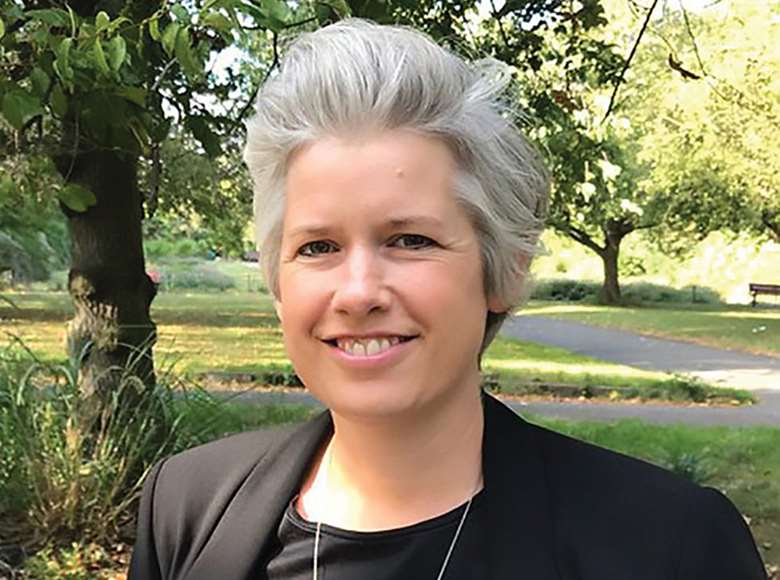Duke of Edinburgh’s Resilience Fund
Tuesday, January 5, 2021
The Duke of Edinburgh’s (DofE) Award has launched a Resilience Fund to help up to 12,000 disadvantaged young people participate in the awards scheme during the Covid-19 crisis.

Through supporting participation, the charity wants to help young people recover from the devastating effects of the pandemic. Young people aged 16-24 have been worst affected by job losses as a result of the economic downturn from the pandemic, with tens of thousands of young people losing jobs and training placements.
Achieving a DofE Award improves young people’s chances of progressing in education or securing a job interview, the charity says.
In addition to funded places for disadvantaged young people, the fund will support online training for up to 3,500 youth workers to support places for disadvantaged young people. This includes senior managers, frontline managers and volunteers. Those involved in DofE licensed organisations are eligible for the training.
Fund elements
The Fund comprises two time-limited packages of support:
1. Funded Participation Places for disadvantaged young people
This aims to fund 12,000 places at all levels of the award – bronze, silver and gold – for disadvantaged young people across the UK until 31 March 2021.
The charity says that by removing the scheme fee “we increase opportunities for young people who are facing disadvantage to start their DofE and gain the benefits of achieving an award; raising their aspirations, helping them build valuable skills for their future and increasing their employability prospects”.
Funds will be restricted per region and country. Centres working with disadvantaged young people should speak to their operations officer for more details.
2. Funded online training for adults running DofE in licensed organisations
Up to 3,500 youth sector professionals running DofE in licensed organisations will be able to access 250 funded training courses until 31 March 2021. Courses include the introduction to DofE, expedition assessor accreditation scheme, and award verifier.
Participants “will gain an understanding of programme flexibilities that enable access to young people irrespective of background, circumstance or ability”, the charity says.
Those running DofE in licensed organisations or an organisation in the process of becoming licensed to run the DofE, will be eligible for funded online training.
Courses are bookable through the DofE opportunity finder and places are restricted per region and country.
How can DofE help?
DofE chief executive Ruth Marvel says the fund will help more young people develop the skills and qualities that will equip them for life and work in the challenging years ahead.
She says: “Young people have missed out on months of learning, are at greater risk of poor mental health and job prospects are looking bleak for young people entering the labour market for the first time.
“Many young people faced challenges before coronavirus disrupted our world, challenges of poverty and inequality, which have been exacerbated by the pandemic. The pandemic has served to widen the gap between disadvantaged young people and their peers putting up new barriers that hold them back from realising their potential in life and work.
“We have a unique opportunity to help young people facing disadvantage, when they need us most. DofE is an accessible development tool, with low/no-cost activities that can be done from home or safely in the community. It gives young people structure and goals, helps them build vital skills and attributes, including resilience and confidence, and introduces them to people, causes, subjects and opinions outside their immediate circles.
“Achieving a DofE Award levels the playing field and offers possibility; the possibility of progressing in education or securing a job interview.
“The year ahead will be critical for young people and I am delighted that DofE can support those young people who have been most severely affected by the pandemic to build the skills, resilience and confidence they will need to navigate the challenges that lie ahead.”
Funding roundup
- Community projects will be able to apply for a £4m fund designed to help reduce loneliness in the coming months. The Local Connections Fund – made up of £2m from the government and £2m from The National Lottery Community Fund – will be used for hundreds of small grants worth between £300 and £2,500. The fund will be split into two rounds of funding, one in January 2021 and one in the summer.
- Minicab company Addison Lee has developed a partnership with youth homelessness charity Centrepoint. The partnership sees Addison Lee directly donate £20,000 to Centrepoint and appeal to passengers to support the partnership through their own donations.
- The BBC Children in Need 2020 Appeal show on Friday 13 November raised £41m. The total includes The Rickshaw Challenge fundraising total, which raised £5.3m, Joe Wicks’ PE Challenge, which raised £2.5m, DIY SOS’s total, which raised £1.2m and the Countryfile total, which raised £3.9m. Simon Antrobus, chief executive of BBC Children in Need, said: “We are absolutely overwhelmed with the total raised and cannot thank our remarkable supporters for once again coming together to help make a difference.”
- The Tottenham Youth Fund has launched the Winter Support Programme to help young people and their families in need over the Christmas period. The Tottenham Youth Fund was set up by Cllr Seema Chandwani and David Lammy MP in December 2018. Both Chandwani and Lammy donate £1,000 a year each to the fund and the rest is raised through a crowdfunder.




